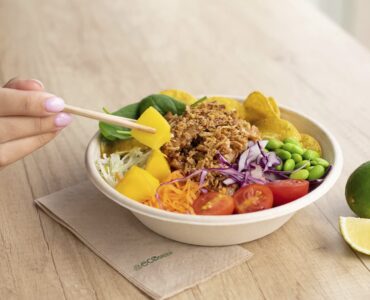Fiber
Foods high in fiber, such as fruits and vegetables, oatmeal, nuts, and legumes, can help with constipation, which becomes more common with age. They can also help lower cholesterol, control blood sugar and maintain a healthy weight. If you’re a man age 51 or older, try to eat 30 grams of fiber each day. If you’re a woman, try about 21 grams.
Whole grains.
They are a great source of fiber and are rich in B vitamins, which you’ll need more of as you age. Vitamin B-6 and folic acid play a key role in keeping your brain healthy. Even a small deficiency can make a significant difference. Whole grains can also reduce your chances of getting heart disease, cancer and diabetes. However, don’t stop at whole-grain breads.
Nuts
Yes, they’re small, but nuts like almonds, walnuts, cashews, pecans and pistachios have great rejuvenating properties. These crunchy snacks contain special nutrients that can help delay or prevent age-related heart disease, stroke, type 2 diabetes, nerve disease and some cancers.
Water
As you get older, not only does your body lose water, but your sense of thirst begins to disappear. This means that it will take you longer to realize when you are low on fluids. Water is food for your health in many ways. It softens your joints, helps control your body temperature, and affects your mood and how well you focus.
Fish
Fatty fish like salmon, tuna, herring and farm-raised trout should be on your menu twice a week. What’s the reason? They are high in DHA, an omega-3 fatty acid that is good for your brain. Low levels of DHA have been linked to Alzheimer’s disease, but eat enough of it and you can improve your memory and ability to learn new things.
Lenten Protein.
Protein-rich foods combat the natural loss of muscle mass that occurs with age. Eat as much protein as possible in “real” foods, such as eggs, lean meats and dairy products, instead of protein powders, which may not give you as many nutrients.
Dairy products
The calcium found in dairy products keeps your bones healthy. As you get older, it can also reduce your risk of developing osteoporosis, colon cancer and high blood pressure. After age 50, you will need 1,200 milligrams of calcium a day, which you can get with low-fat and nonfat dairy products. Milk and cheese are not your only options.
Blueberries
These are a tasty way to protect your brain as you age. Blueberries contain polyphenols, compounds that reduce inflammation throughout the body. They reduce damage to your DNA, which can make some diseases more likely. They also improve how well your brain cells “talk” to each other.
Red and orange foods
Watermelon, tomatoes, red and orange bell peppers – these fruits and vegetables are rich in a natural compound called lycopene. Studies show that foods containing it can reduce your risk of developing certain cancers, as well as protect you from strokes.
Cruciferous vegetables.
The more candles on your birthday cake, the weaker your immune system – your body’s defense against germs. Cruciferous vegetables such as broccoli, Brussels sprouts and cauliflower can help strengthen it. They have a chemical called sulforaphane, which activates your immune cells so they can better attack toxins that damage your cells and eventually cause disease.
Dark green foliage.
To keep your eyes healthy, eat more vegetables like spinach, kale and leafy lettuce. The antioxidants they contain can reduce your chances of getting cataracts and yellow spot degeneration. Eating at least one serving a day can also help prevent the slowing of memory, thinking and judgment that can happen with age.
Avocados
You have plenty of good reasons to improve your guacamole recipe. Studies show that the antioxidants in avocados can improve your memory and help you solve problems faster. Avocados can also lower cholesterol, reduce your chances of developing arthritis, help you maintain a healthy weight and protect your skin from the harmful effects of the sun.



